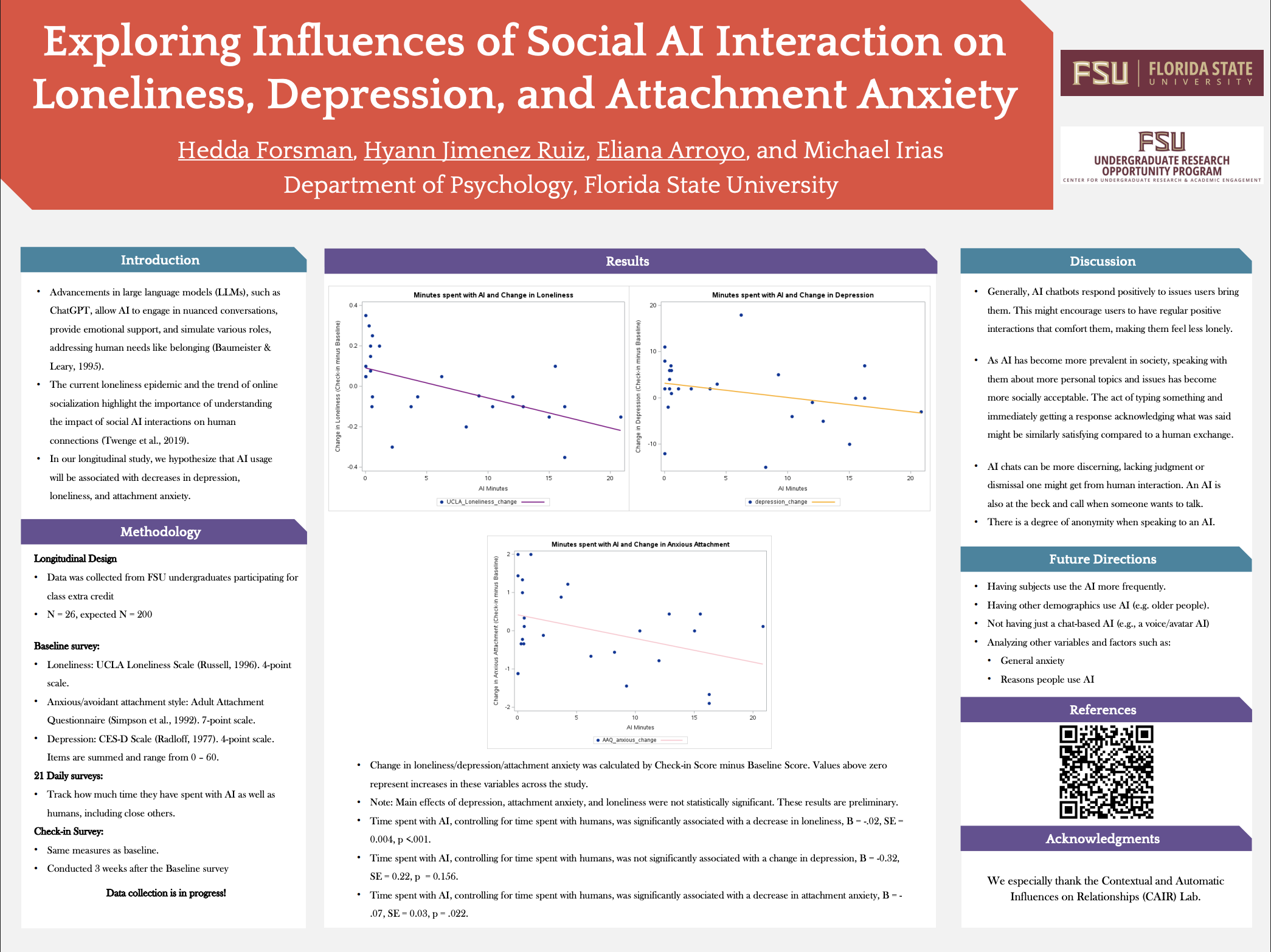Research Symposium
25th annual Undergraduate Research Symposium, April 1, 2025
Hedda Forsman Poster Session 4: 3:00 pm - 4:00 pm/ Poster #109

BIO
I'm a 3rd year undergraduate student at Florida State University, majoring in Statistics. My academic interests include the interplay between technology and psychology. I am currently working in the Contextual and Automatic Influences on Relationships (CAIR) lab, and I'm pursuing the field of data science.
Exploring Influences Between Social AI Interaction and Human Relationships
Authors: Hedda Forsman, Michael IriasStudent Major: Statistics
Mentor: Michael Irias
Mentor's Department: Psychology Mentor's College: College of Arts and Sciences Co-Presenters: Hyann Jimenez Ruis, Eliana Arroyo
Abstract
Enhancements in large language models (LLMs), such as ChatGPT, have transformed human-AI interaction into a source of emotional support and bonding. As social AI finds greater acceptance, its impact on human relationships is yet to be fully explored. This study examines the bidirectional influence between AI usage and psychological well-being, specifically loneliness, depression, and attachment anxiety.
A longitudinal study was conducted with undergraduate participants (N = 26, expected N = 200) who completed baseline surveys measuring loneliness (UCLA Loneliness Scale), attachment style (Adult Attachment Questionnaire), and depression (CES-D Scale). Participants then reported daily interactions with AI and humans for three weeks, followed by a check-in survey using the same psychological measures.
Results indicated that increased time spent with AI, while controlling for human interaction, significantly reduced loneliness (B = -0.02, SE = 0.004, p < .001) and attachment anxiety (B = -0.07, SE = 0.03, p = .022). AI interaction was not significantly linked to depression change (B = -0.32, SE = 0.22, p =.156). These results imply that AI interaction could be associated with a reduction in loneliness and attachment anxiety - perhaps because it is more accessible, responsive, and non-judgmental than some human interactions. Future research could investigate the effect of AI on different demographics and impacts of other forms of AI interfaces, like voice-operated systems. Knowledge of these associations can help guide the development of AI for social and emotional health in an era of coexistence with socially sophisticated artificial entities.
Keywords: Artificial Intelligence, Attachment Anxiety, Loneliness

